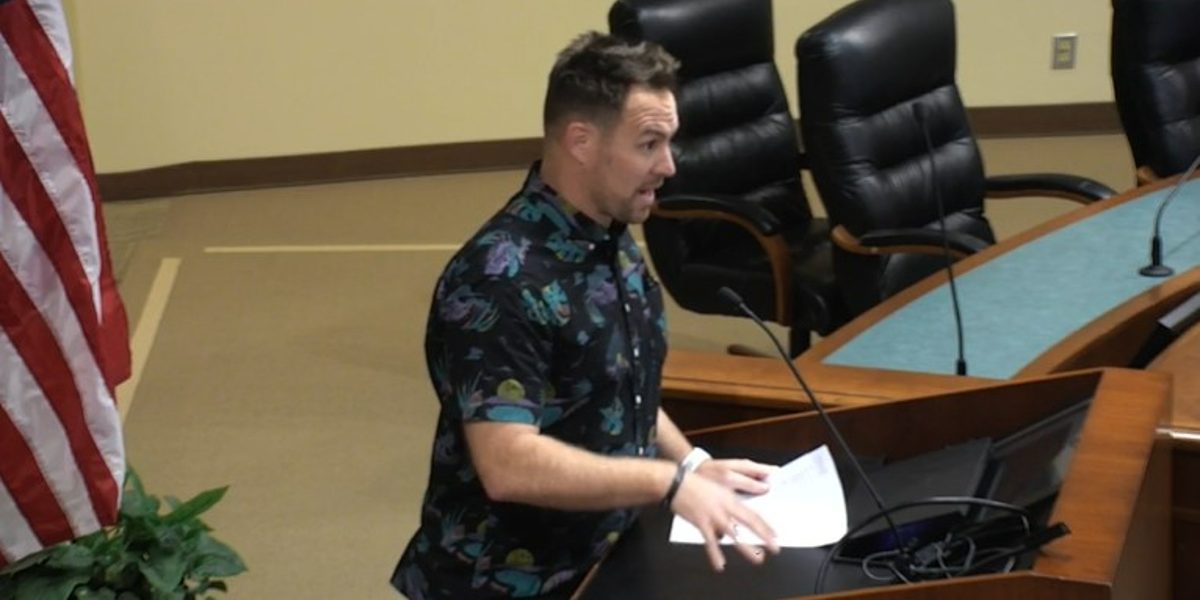Last week, the Placentia Yorba-Linda School Board moved forward with a resolution to keep Critical Race Theory (CRT) principles out of its classrooms.
After hours of taking comment from the public and debating among themselves, board members Carrie Buck, Marilyn Anderson, Leandra Blades, Shawn Youngblood, and Karin Freeman hammered out a draft that will be considered for adoption on April 5.
The sponsors of the “Opposing the Teaching of Critical Race Theory” resolution, Trustee Leandra Blades, explained its purpose is to hold teachers accountable for what it being taught in classroom and function as a standard to keep lessons from falling outside the district-approved curriculum.
“This is where pacing guides really come into play so that we know that at every single level, we know exactly what every teacher is teaching,” she said. “And that they are teaching from the textbook and they’re teaching the same thing so that the district has a little more control over what our students are hearing.”
Organized Opposition From Progressive Student Group
The board workshop took place at 4:00 p.m. on a workday, and the public comments period was dominated by teachers and a group of students organized by Diversify Our Narrative, a progressive-Left advocacy organization that believes in using “the power of the public school system” to “educate its students about race, racism, and anti-racism in America through the right books and curriculum.” Diversify Our Narrative’s Yorba Linda High School chapter advocates selecting classroom books based the author’s race or ethnicity.
These speakers were opposed to banning CRT, claiming it would prevent incorporation of topics such as the World War II internment of Japanese-Americans into history classes, and that is was necessary to combat racism. Diversify Our Narrative was involved in organizing these students, two of whom refused to stand during the reciting of the Pledge of Allegiance, according to witnesses.
Beatrix Johnson attempted to link consideration of the CRT ban to an unsubstantiated allegation that Yorba Linda has been a “sundown town,” before going on to claim that “racism is taught at home, which is why we need our schools to teach against racism.”
“What do Adolf Hitler, Benito Mussolini, Saddam Hussein and Yorba Linda have in common? They all banned education!” said Johnson, going on to say people who want to ban CRT from public school curriculum are “fascists.”
Some members of the public expressed concern the resolution might jeopardize Advanced Placement (AP) program designations at PYLUSD schools. This worry arose after the College Board’s AP program threatened to remove AP designation from courses where required topics are banned.
“If a school bans required topics from their AP courses, the AP Program removes the AP designation from that course and its inclusion in the AP Course Ledger provided to colleges and universities,” they said in a statement in early March.
It is unclear whether AP designation would be removed, if at all, from AP courses within the school district.
Blades told OC Independent such fears are misplaced.
“There has never been any talk of removing any history or content from the AP curriculum or general curriculum,” said Blades. “The only thing being removed is the teaching of critical race theory in all subjects. Do not teach a “theory”, only teach the subjects.”
Blades added that the College Board, which offers and administered AP exams, has been unresponsive to requests as to why or how schools who ban Critical Race Theory would lose their AP designation.
A number of parents spoke up in support of the ban during public comments. Sarah Clark, a mother of an 11-year-old, said her daughter did not want to celebrate Thanksgiving after the girl’s teacher made her daughter feel it was wrong because of their Native American heritage.
Parent Todd Fraser supported banning CRT from the district.
“This is an issue that is fueled by dividing us in an already divided society. [Banning] CRT does not say racism doesn’t exist,” said Fraser.
Fraser noted that history classes already discuss ugly aspects of American history such as racism, slavery and Jim Crow laws.
“We’re not talking about taking that out. We’re saying don’t divide our people by what they look like,” said Fraser. “We need to teach inclusivity. We need to teach everybody is created equal. CRT does the opposite. It divides us based on race.”
The debate in the PYLUSD is a part of a swelling debate across the country about the increasing incorporation of CRT principles in school curricula. Parents concerned about what they consider racially divisive views and theories are increasingly vocal in their opposition to it, arguing it is not something they want taught to their children in the classroom. The debate to remove CRT is controversial across the country and parents share concerns about its specific topics such as lessons that teach animosity against White people. Supporters of CRT, however, fear the bans remove honest discussion about U.S. history and race. Over 30 states have pending or issued bills that would ban or exclude parts of CRT from the classroom.
During discussion of the resolution, Trustee Anderson requested it include the American Bar Association’s definition of CRT by Janel George. The board’s legal counsel, Todd Robbins, raised the concern that the bullet point descriptions listed in the draft did not fit how the state defines CRT and said the addition would conflict with the district’s definition listed in their six bullet points.
“The six bullet points are not generally included in what the definition of CRT is that I have come across,” Robbins said. “That’s why I’m saying, the board needs to have a discussion or have a better understanding of; if this gets inserted in it, what is the effect of that.”
The bulk of the resolution remained the same but the board agreed to replace the bullet points with ABA’s definition by Janel George.
“[Critical Race Theory recognizes] that race is not biologically real but is socially constructed and socially significant. It recognizes that science refutes the idea of biological racial differences,” George outlines in “Principles of the CRT Practice.” “CRT recognizes that it is the systemic nature of racism that bears primary responsibility for reproducing racial inequality.”
On November 26th, Trustees Marilyn Anderson, Leandra Blades, and Shawn Youngblood raised concerns over the teaching of CRT. On December 24th, the same three trustees voted in support of Resolution No 21-12 Review, while President Buck and Freeman voted no. The next board meeting is set for April 5th where supportive members are to bring up the CRT resolution again.
OC Independent Editor Matthew Cunningham contributed to this article.


